Can We Cope with Arterial Hypertension? Kyrgyzstan–2025: An Inside Perspective
Professor Pershukov heads the Department of Hospital Therapy and also oversees radiological diagnostics and oncology at Jalal-Abad State University. He also serves as the Deputy Director for Research at the Southern Regional Scientific Center for Cardiovascular Surgery.
According to statistics from the World Health Organization and the World Heart Federation, arterial hypertension has become one of the most common non-communicable diseases of the 20th century, and its impact continues to grow in the 21st century. Adult men over 40 and women over 50 in various countries suffer from persistent high blood pressure, with every second person affected.
In 2017, experts from the American College of Cardiology and the American Heart Association revised the criteria for defining elevated blood pressure, lowering the norm from 140/90 to 130/80 mmHg. This change added 30 million new hypertension patients in the U.S., increasing the total number from 72 to 102 million.
However, according to current treatment guidelines for hypertension in the U.S. and Europe, about 20% of patients suffer from "resistant" hypertension, which does not respond to treatment even with three different classes of medications. This condition increases the risk of serious cardiovascular complications, such as heart attack and stroke.
Effective management of arterial hypertension symptoms requires modern antihypertensive medications, as indicated in medical guidelines worldwide, which educate students and professionals.
But how realistic is it to cope with hypertension, especially in its resistant forms? A study of pharmacy networks in two southern regions of Kyrgyzstan (Osh and Jalal-Abad) showed that out of more than ten surveyed pharmacists, only a limited number of medications are available on the market, primarily inexpensive and less effective options.
From the class of angiotensin-converting enzyme inhibitors, only four medications were found for sale (captopril, enalapril, perindopril, lisinopril), significantly limiting the choices for doctors. In the category of angiotensin II receptor blockers, only two out of eight possible medications (losartan and valsartan) were found, with more potent options absent.
In the group of calcium channel antagonists, only three medications from one subgroup (dihydropyridines: nifedipine, amlodipine, lerkanidipine) were available, with other subgroups not represented.
The selection of diuretics was also limited: only hydrochlorothiazide, indapamide, furosemide, and torsemide were on the market, and all of them are short-acting.
There were extremely few beta-blockers available: only bisoprolol and nebivolol, while metoprolol was found in only two pharmacies.
In such conditions, effective treatment of hypertension, especially its complicated forms and resistant cases, seems extremely challenging.
At the same time, official data shows that cardiovascular diseases remain the leading causes of mortality in the country. As long as the range of available medications is limited, the situation will not change.
Medications are vital for many people in modern society. To ensure a working population and sustainable regional development, the country needs accessible and effective medications, as well as constant quality control. New drugs must not only be widely available but also well-known to local specialists. While the current selection remains limited, it will be important to update doctors' approaches to therapy selection when innovations become available on the market.
Read also:
Coronary Bypass and Stenting: Which is More Effective and Cost-Effective for Patients? Opinion of Professor Pershukov
Doctor of Medical Sciences Igor Pershukov expressed his opinion on the differences between coronary...
"2x2=4 for Myocardial Infarction". Algorithm for Patients and Medical Services in Acute Myocardial Infarction
Professor Igor Pershukov, who heads the Department of Hospital Therapy with a course in...
What is Needed for the Development of High-Tech Medical Care in Kyrgyzstan? Opinion of Professor I. Pershukov
Professor and Doctor of Medical Sciences, as well as Doctor of Philosophy (PhD) Igor Pershukov...
How to Save Patients with Myocardial Infarction Now? Opinion of Professor Igor Pershukov
Myocardial infarction continues to be one of the leading causes of mortality worldwide, including...
Every third resident of Kyrgyzstan suffers from high blood pressure
According to the report by Deputy Minister of Health Bubuzhan Arykbaeva, a study conducted in 2023...
How long does a doctor need to study?
Complex medicine requires not only theoretical knowledge but also many years of practical...
In Kyrgyzstan, about 20 thousand people die from heart diseases every year
According to information voiced on the air of "Birinchi Radio" by the head of the...
Distortions in Oncology Care for the Population of Kyrgyzstan. Commentary by Professor T. Batyraliev
Professor Talantbek Batyraliev, who previously held the position of Minister of Health, shared his...
Kyrgyzstanis Consume Too Much Salt. Doctor Warns of Risks
According to the statement by Myskal Duyshenalieva, head of the hypertension department at the...
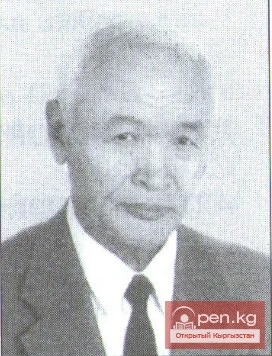
Joshibaev Seikhan Joshibaevich
Joshibaev Seithan Joshibaevich Doctor of Medical Sciences, Professor, Corresponding Member of the...
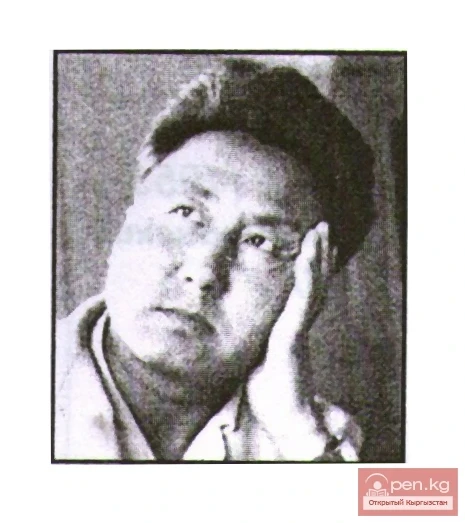
Aliyev Midin Aliyevich (1928-1997)
Aliyev Midin Alievich (1928-1997), Doctor of Medical Sciences (1965), Professor (1967)...

Scientists sound the alarm over an illness affecting children worldwide
According to a study published in the Lancet, childhood hypertension is becoming an increasingly...
Kyrgyzstanis are once again urged to undergo testing for viral hepatitis and get vaccinated
In Kyrgyzstan, the initiative for free testing and treatment of viral hepatitis B and C continues,...
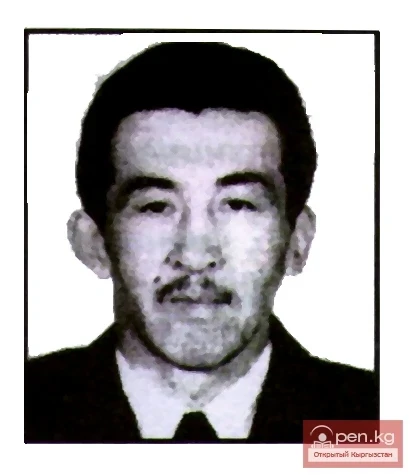
Abdramанов Kaldarbek Alisherovich — Doctor of Medical Sciences
Abdramanov Kaldarbek Alisherovich (1955), Doctor of Medical Sciences (1996)...
Passed away distinguished physician, professor
At the age of 89, Professor, Doctor of Medical Sciences, and Honorary Professor of KGMA, as well as...
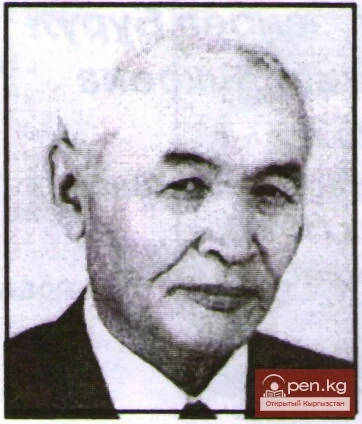
Joshibaev Seithan (1939)
Dzhoshibaev Seikhan (1939), Doctor of Medical Sciences (1981), Professor (1994), Corresponding...
How to Build an Effective Cardiovascular Care System and Improve Patient Survival? Opinion of Professor Batyraliev
Professor Talantbek Batyraliev, who previously held the position of Minister of Health, shared his...
Residents of Kyrgyzstan consume salt 3.5 times more than the recommended norm
According to information announced on "Birinchi Radio," residents of Kyrgyzstan consume...
Study: Some viruses may significantly increase the risk of cardiovascular diseases
According to a study conducted by the American Heart Association, certain viral infections, such as...
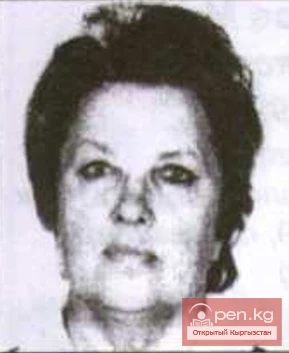
Lyudmila Dmitrievna Rybalkina
Rybalkina Lyudmila Dmitrievna (1932), Doctor of Medical Sciences (1988), Professor (1991) Russian....
How Should the Cardiological Care System Be Structured? A Commentary by Professor Talantbek Batyraliev
Professor Talantbek Batyraliev, Doctor of Medical Sciences and a full member of the American...

More and more Kyrgyz citizens are suffering from obesity.
In 14 years, the number of people in Kyrgyzstan whose weight significantly exceeds the norm has...
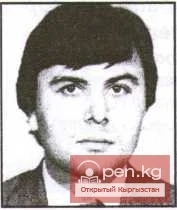
Murad Khasanovich Dadabaev (1957)
Dadaev Murat Khasanovich (1957), Doctor of Medical Sciences (1986), Laureate of the State Prize of...
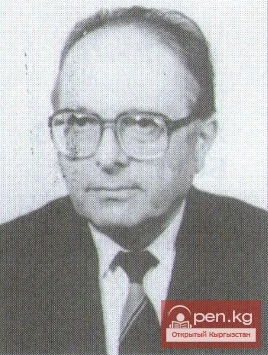
Mikhail Isaakovich Kitaev
Mikhail Isaakovich Kitaev Doctor of Medical Sciences, Professor, Honored Scientist of the Kyrgyz...
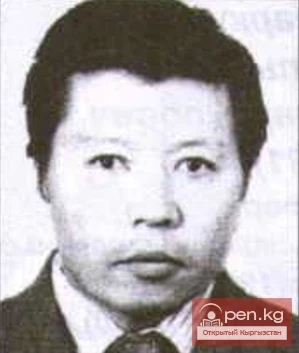
Namazbekov Mambetakun Namazbekovich
Namazbekov Mambetakun Namazbekovich (1941), Doctor of Medical Sciences (1986), Professor (1989),...
Doctor of Medical Sciences Has Passed Away
On November 5, 2025, Professor of the Department of General and Faculty Surgery of the Kyrgyz State...
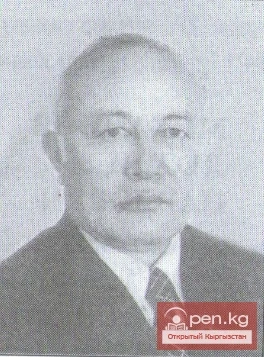
Moldotashev Ishenbay Kurmanovich
Moldotashov Ishenbay Kurmanovich Doctor of Medical Sciences, Professor, laureate of the State...
In Kyrgyzstan, about 20,000 people die from heart diseases every year
According to the National Center for Cardiology and Therapy, around 20,000 people die from...
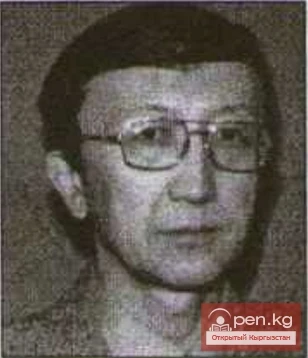
Osmonov Talgat Abdullayevich
Osmonov Talgat Abdullayevich (1950), Doctor of Medical Sciences (2000) Kyrgyz. Born in Frunze....
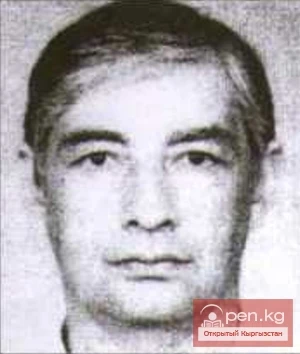
Vadim Amiarovich Nasirov
Nasirov Vadim Amiarovich (1947), Doctor of Medical Sciences (1983), Professor (1987) Uzbek. Born...
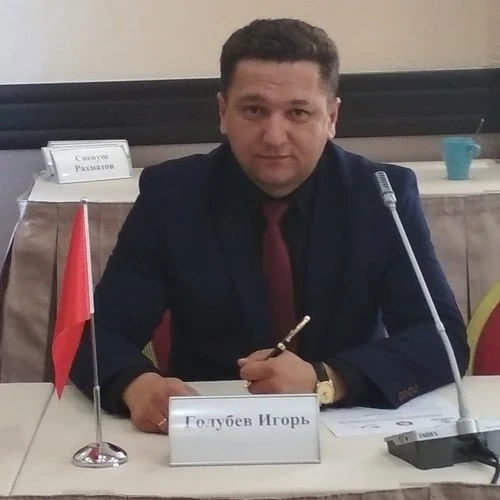
Igor Golubev: Kyrgyzstan Should Have Its Own Navy
At the KyrgyzTransLogistic 2025 exhibition, held on the international stage, Igor Golubev, who...
Charitable Collaboration Expands Opportunities for Cardiac Surgery in Kyrgyzstan
In one of the private medical institutions in Kyrgyzstan, a program for free surgeries for patients...
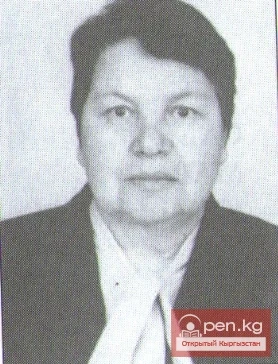
Larisa Borisovna Saburova
Saburova Larisa Borisovna Doctor of Medical Sciences, Professor. Born in 1938. Graduated from...
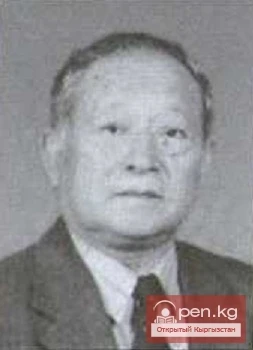
Bebezov Hakim Sulaymanovich
Bebezov Hakim Sulaymanovich Doctor of Medical Sciences, Professor, Honored Doctor of the Kyrgyz...
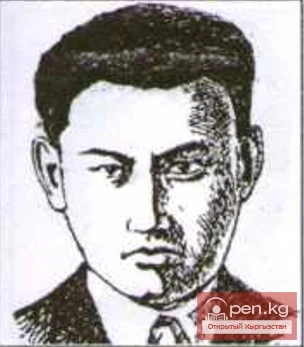
Zyfar Egemberdiyevich Egemberdiyev
Zyfar Egemberdievich Egemberdiev (1908-1974), Doctor of Medical Sciences (1958), Professor (1966)...
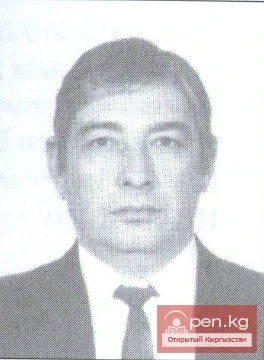
Vadim Ilyarovich Nasirov
Nasirov Vadim Ilyarovich Doctor of Medical Sciences, Professor, Full Member of the Polish Academy...
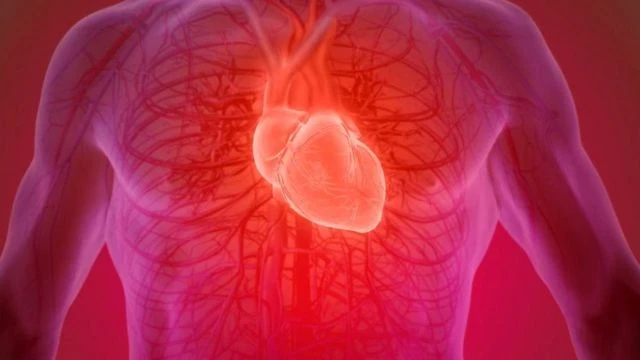
In Naryn, the first high-tech mountain hospital in the country will be established to treat cardiovascular diseases.
In Kyrgyzstan, a memorandum of cooperation was signed between the National Center for Cardiology...
Non-communicable diseases cost the economy of the Kyrgyz Republic nearly 30 billion soms
Non-communicable diseases (NCDs) inflict an economic loss of 29.8 billion soms on the economy of...
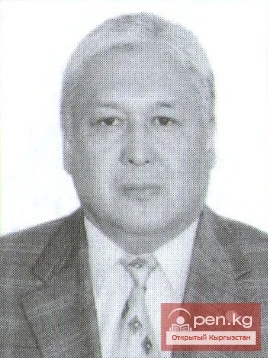
Abdylas Djorobekov Djorobekovich
Dzhorobekov Abdylas Dzhorobekovich Doctor of Medical Sciences, Professor. Born in 1951. Graduated...
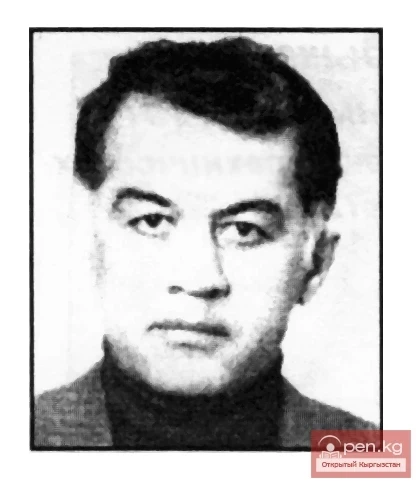
Abdurakhmanov Hasan Ikramovich — Doctor of Medical Sciences, Professor
Abdurakhmanov Hasan Ikramovich (1945-2002), Doctor of Medical Sciences (1993), Professor (1996)...
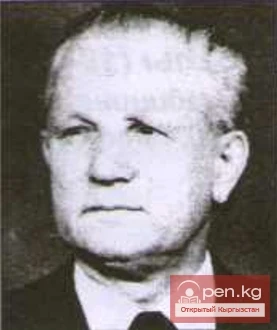
Kalyuzhny Ivan Timofeyevich
Kalyuzhny Ivan Timofeevich (1927), Doctor of Medical Sciences (1970), Professor (1973) Ukrainian....
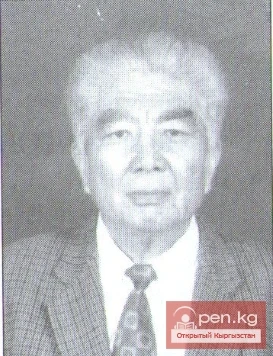
Kozhokmatov Satyndy Kozhokmatovich
Kozhokmatov Satyndy Kozhokmatovich Doctor of Medical Sciences, Professor, Honored Scientist and...
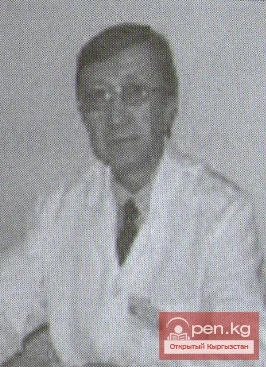
Osmonov Talgat Abdullaevich
Osmonov Talgat Abdullayevich Doctor of Medical Sciences, Professor. Born in 1950. Graduated from...
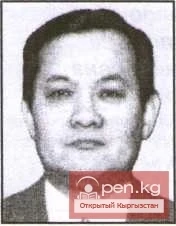
Ernest Dzhishambaev Jumakadyrovich (1958)
Dzhishambaev Ernest Dzhumakadyrovich (1958), Doctor of Medical Sciences (2001). Kyrgyz. Born in...